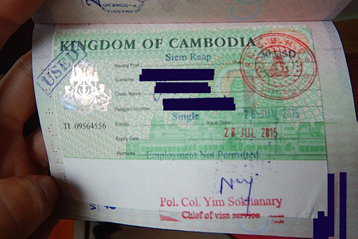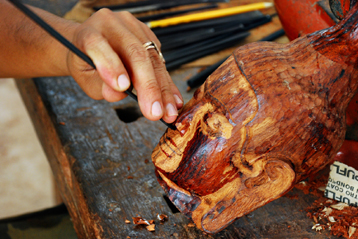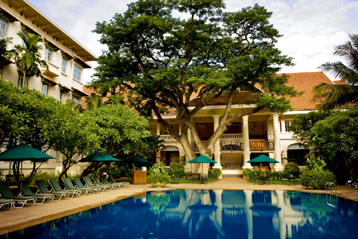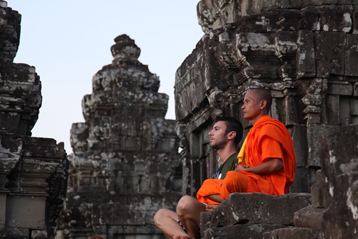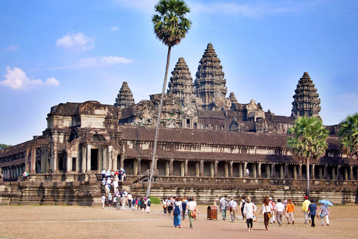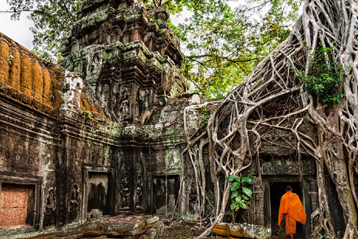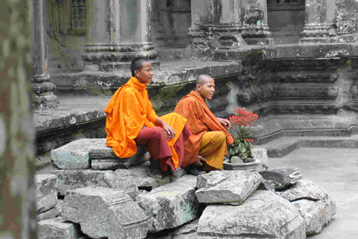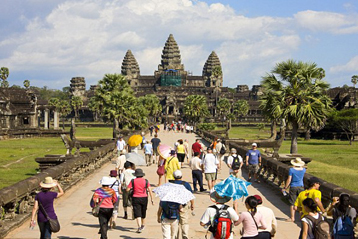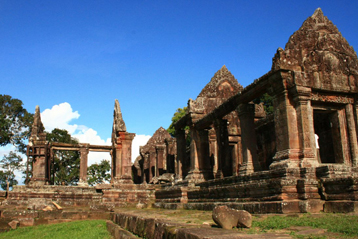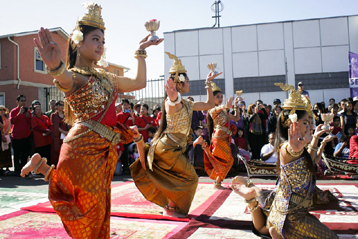Lifestyle in Cambodia
For many older Cambodians, life is centred on family, faith and food, a timeless existence that has stayed the same for centuries.
For many older Cambodians, life is centred on family, faith and food, a timeless existence that has stayed the same for centuries. Family is more than the nuclear family we now know in the West – it’s the extended family of third cousins and obscure aunts (as long as there is a bloodline there is a bond). Families stick together, solve problems collectively, listen to the wisdom of the elders and pool resources. The extended family comes together during times of trouble or times of joy, celebrating festivals and successes, mourning deaths or disappointments. Whether the Cambodian house is big or small one thing is certain: there will be a lot of people living inside.
For the majority of the population still living in the countryside, these constants carry on as they have: several generations sharing the same roof, the same rice and the same religion. But during the dark decades of the 1970s and 1980s, this routine was ripped apart by war and ideology, as the peasants were dragged from all they held dear to fight a bloody civil war and later forced into slavery. Angkor, the Khmer Rouge organization, took over as the moral and social beacon in the lives of the people and families were forced apart, children turned against parents, brothers against sister. The bond of trust was broken and is only slowly being rebuilt today.
Faith is another rock in the lives of many older Cambodians, and Buddhism has helped them to rebuild their shattered lives after waking from the nightmare that was the Khmer Rouge. Most Cambodian houses contain a small shrine to pray for luck and the wats are thronging with the faithful come Buddhist Day.
Cambodian Girls
Food is more important to Cambodians than to most, as they have tasted what it is like to be without. Famine stalked the country in the late 1970s, and even today, malnutrition and food shortages are common during times of drought. Rice is a Khmer staple served with every meal and many a Cambodian driver cannot go on without his or her daily fix. For country folk, still the majority of the Cambodian population, we must not forget their fields. Farmers are attached to their land, their very survival dependent on it, and the harvest cycle dictates the rhythm of rural life.
But for the young generation of teenagers brought up in a post-conflict, post-communist period of relative freedom, it’s a different story – arguably thanks to their steady diet of MTV and steamy soaps. Like other parts of Asia before it, Cambodia is experiencing its very own ’60s swing, w the younger generation stands up for a different lifestyle than the one their parents had to wallow. This is creating plenty of feisty friction in the cities, as rebellious teens dress as they like, date who they want and hit the town until all hours. But few actually live on their own; they still come home to ma and pa at the end of the day and the arguments start again, particularly about marriage and settling down, as the older generations don’t like to see the younger generation living the single life.
Cambodia is a country undergoing rapid change, but for now the traditionalists are just about holding their own, although the onslaught of karaoke is proving hard to resist. Cambodia is set for major demo- graphic changes in the next couple of decades. Currently, just 15% of the population lives in urban areas, which contrasts starkly with the country’s more-developed neighbors like Malaysia and Thailand. Increasing numbers of young people are likely to migrate to the cities in search of opportunity, changing forever the face of contemporary Cambodian society. However, for now, Cambodian society remains much more traditional than in Thailand and Vietnam, and visitors need to keep this in mind.
More guide...
Responsible Travel
Being a responsible eco tour operator is at the heart of what ACTIVETRAVEL ASIA is all about. From the start, we have been committed to offering low-impact tours that benefit traveler and host alike. We work with local communities, businesses and individuals to develop sustainable tourism opportunities that help local economies while minimizing negative environmental and cultural impacts.
Asia Travel News


